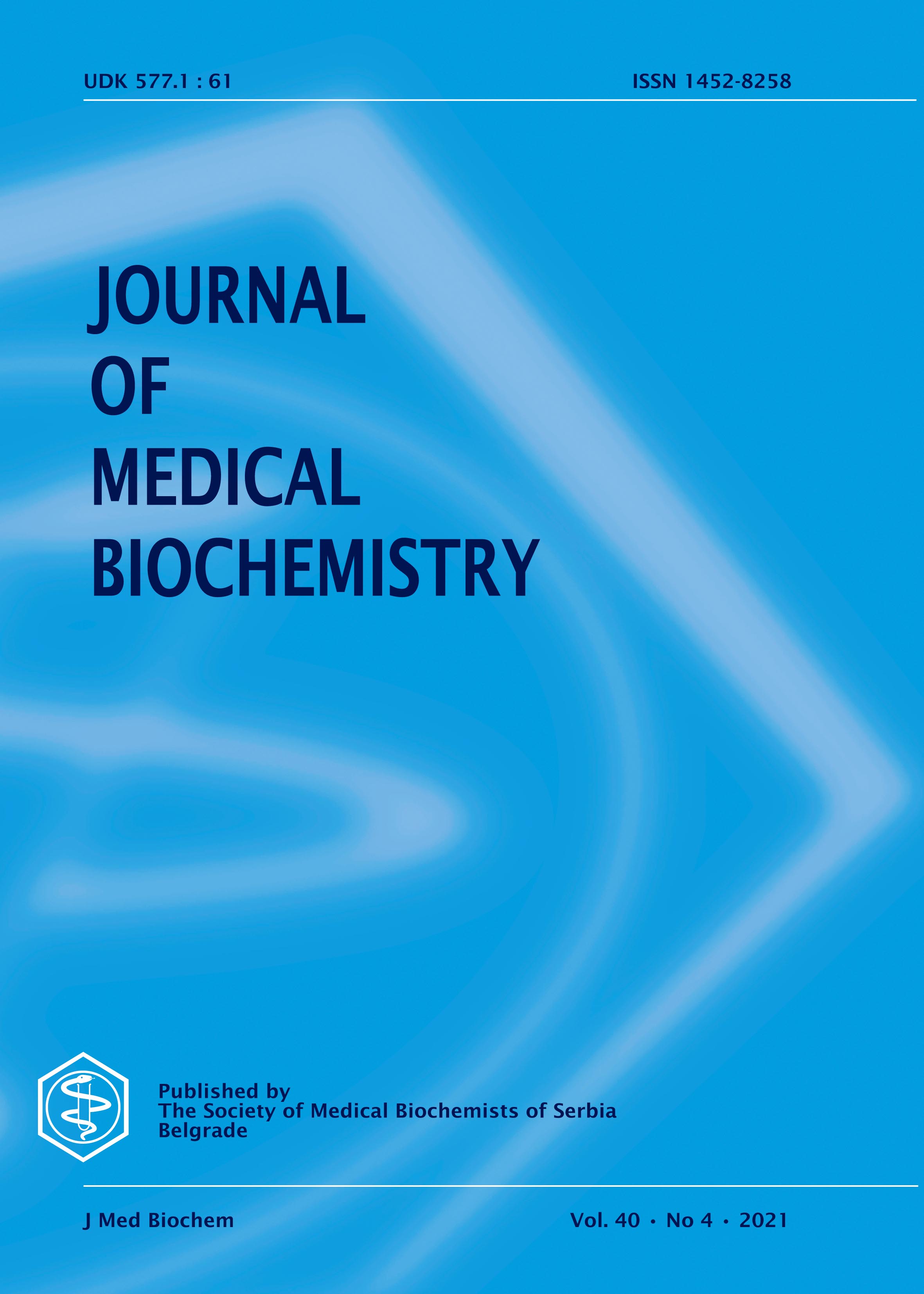The Importance of Antioxidant Status in Gastric Intestinal Metaplasia
The Importance of Antioxidant Status in Intestinal Metaplasia
Abstract
Background and Aim: Oxidative stress status in different cancer types was investigated before, but not studied in gastric intestinal metaplasia to the best of our knowledge. Purpose of this study is to examine whether there is a difference between oxidative stress status in patients with intestinal metaplasia (IM) compared to individuals without IM, we compared the serum levels of disulfide (SS), total thiol (TT) and native thiol (NT).
Patients and Methods: This was a prospective, non-randomized case-control study including 67 patients with histopathologically confirmed IM and 60 individuals demographically matched in terms of age, gender, BMI, smoking status, and chronic diseases as control group.
Results: The mean NT, TT and NT to TT(NT/TT) ratios were statistically significantly higher in IM group compared to controls [(351.71±81.9µmol/L vs. 271.82±54.13µmol/L, p=0.000),(391.5±92.69µmol/L vs. 308.59±55.53 µmol/L, 0.000) and (0.89±0.6 vs. 0.87±0.29, p=0.022), respectively].The mean SS to TT(SS/TT) ratio was significantly lower in IM group than control group (0.050±0.31 vs. 0.060±0.014, P=0.022). Median SS and mean SS/NT ratio was similar in both groups[16.3 (3.3 – 78) vs. 18.3 (10 – 32.7), p=0.271 and 0.055 ± 0.041 vs. 0.070 ± 0.019, p=0.068, respectively). In ROC analysis, cut off value of SS/NT for IM was found 0.062, in regression analysis, SS/NT<0.062 was found as an independently prognostic marker for IM (OR, 2.38; 95%CI: 1.168 - 4.865, P=0.017).
Conclusion: SS /NT ratio lower than 0.062 was found as an independently prognostic marker for IM. This ratio could help to distinguish which patients should be followed closely for gastric cancer.
References
1. Bray F, Ferlay J, Soerjomataram I, Siegel RL, Torre LA, Jemal A: Global cancer statistics 2018: GLOBOCAN estimates of incidence and mortality worldwide for 36 cancers in 185 countries. CA Cancer J Clin 2018, 68(6):394-424.
2. Crew KD, Neugut AI: Epidemiology of gastric cancer. World J Gastroenterol 2006, 12(3):354-362.
3. Correa P, Piazuelo MB: The gastric precancerous cascade. J Dig Dis 2012, 13(1):2-9.
4. Correa P, Piazuelo MB, Wilson KT: Pathology of gastric intestinal metaplasia: clinical implications. Am J Gastroenterol 2010, 105(3):493-498.
5. Ozaydin N, Turkyilmaz SA, Cali S: Prevalence and risk factors of Helicobacter pylori in Turkey: a nationally-representative, cross-sectional, screening with the ¹³C-Urea breath test. BMC Public Health 2013, 13(1215):1471-2458.
6. de Vries AC, Kuipers EJ: Epidemiology of premalignant gastric lesions: implications for the development of screening and surveillance strategies. Helicobacter 2007, 2:22-31.
7. Gill JG, Piskounova E, Morrison SJ: Cancer, Oxidative Stress, and Metastasis. Cold Spring Harb Symp Quant Biol 2016, 81:163-175.
8. Dröge W: Free radicals in the physiological control of cell function. Physiol Rev 2002, 82(1):47-95.
9. Esme H, Cemek M, Sezer M, Saglam H, Demir A, Melek H, Unlu M: High levels of oxidative stress in patients with advanced lung cancer. Respirology 2008, 13(1):112-116.
10. Ates I, Ozkayar N, Inan B, Yilmaz FM, Topcuoglu C, Neselioglu S, Erel O, Dede F, Yilmaz N: Dynamic thiol/disulphide homeostasis in patients with newly diagnosed primary hypertension. J Am Soc Hypertens 2016, 10(2):159-166.
11. Hanikoglu F, Hanikoglu A, Kucuksayan E, Alisik M, Gocener AA, Erel O, Baykara M, Cuoghi A, Tomasi A, Ozben T: Dynamic thiol/disulphide homeostasis before and after radical prostatectomy in patients with prostate cancer. Free Radic Res 2016, 50(sup1):S79-S84.
12. Sahin S, Karataş F: Plasma thiols in prostate cancer. Aging Male 2019, 28(1):1631273.
13. Karatas F, Acat M, Sahin S, Inci F, Karatas G, Neselioglu S, Haskul I, Erel O: The prognostic and predictive significance of serum thiols and disulfide levels in advanced non-small cell lung cancer. Aging Male 2019, 16:1-10.
14. Arioz DT, Camuzcuoglu H, Toy H, Kurt S, Celik H, Erel O: Assessment of serum paraoxonase and arylesterase activity in patients with endometrial cancer. Eur J Gynaecol Oncol 2009, 30(6):679-682.
15. Camuzcuoglu H, Arioz DT, Toy H, Kurt S, Celik H, Erel O: Serum paraoxonase and arylesterase activities in patients with epithelial ovarian cancer. Gynecol Oncol 2009, 112(3):481-485.
16. Du XF, Zhang LL, Zhang DZ, Yang L, Fan YY, Dong SP: Clinical significance of serum total oxidant/antioxidant status in patients with operable and advanced gastric cancer. Onco Targets Ther 2018, 11:6767-6775.
17. Huang T, Zhou F, Yuan X, Yang T, Liang X, Wang Y, Tu H, Chang J, Nan K, Wei Y: Reactive Oxygen Species Are Involved in the Development of Gastric Cancer and Gastric Cancer-Related Depression through ABL1-Mediated Inflammation Signaling Pathway. Oxid Med Cell Longev 2019, 15(5813985).
18. Tsukanov VV, Smirnova OV, Kasparov EV, Sinyakov AA, Vasyutin AV, Tonkikh YL: Changes in the indices of prooxidant and antioxidant systems in blood plasma in men with atrophic gastritis and gastric cancer. Ter Arkh 2018, 90(2):24-27.
19. Rawla P, Barsouk A: Epidemiology of gastric cancer: global trends, risk factors and prevention. Prz Gastroenterol 2019, 14(1):26-38.
20. Gastric Intestinal Metaplasia (GIM): Clinical Decision Support Tool. Gastroenterology 2020, 158(3):11.
Copyright (c) 2021 Nilay Danis, Aysegul Ertinmaz Ozkan, Fatih Karatas, Cagri Cakici, Turkan Yigitbasi, Nurhayat Ozkan Sevencan, Burcak Kayhan

This work is licensed under a Creative Commons Attribution 4.0 International License.
The published articles will be distributed under the Creative Commons Attribution 4.0 International License (CC BY). It is allowed to copy and redistribute the material in any medium or format, and remix, transform, and build upon it for any purpose, even commercially, as long as appropriate credit is given to the original author(s), a link to the license is provided and it is indicated if changes were made. Users are required to provide full bibliographic description of the original publication (authors, article title, journal title, volume, issue, pages), as well as its DOI code. In electronic publishing, users are also required to link the content with both the original article published in Journal of Medical Biochemistry and the licence used.
Authors are able to enter into separate, additional contractual arrangements for the non-exclusive distribution of the journal's published version of the work (e.g., post it to an institutional repository or publish it in a book), with an acknowledgement of its initial publication in this journal.

